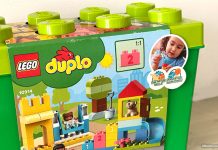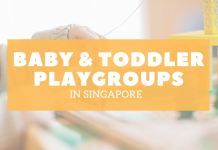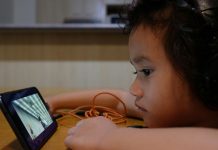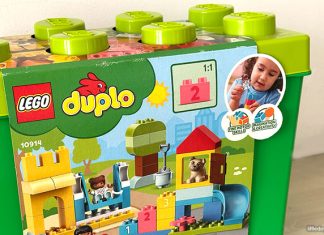
Before there was ‘helicopter parenting’ and ‘free-range parenting’, there was ‘Baumrind’s parenting styles’.
In the 1960s, psychologist Diana Baumrind at University of California Berkeley carried out research into how different parenting styles can lead to different outcomes in children. This was later expanded on by Maccoby and Martin and led to a the development of various categories of parenting styles, which are:
• Disciplinarian Parenting
• Permissive Parenting
• Authoritative Parenting
• Uninvolved Parenting
It is useful to think of these types of parenting styles as archetypes or simplistic models. Most parents do not stick strictly to only one, single parenting style. In reality, people exhibit a combination of two or three of these styles, and to different degrees.
MID AUTUMN FESTIVAL: Lanterns, Lights and Festive Fun
GIVEAWAY FOR ENEWSLETTER SUBSCRIBERS: LEGO DUPLO Deluxe Brick Box
Also, as parents, we tailor our parenting approach according to the temperament and character of the child. Some children require a stricter approach, while others respond better to a more persuasive parenting.
Nonetheless, it can be interesting to think Baumrind’s parenting styles; this allows us to take a more conscious and mindful approach toward parenting.
Parenting Styles
Disciplinarian Parenting
Disciplinarian parents have a very strict approach with little room for negotiation between the parent and child. Rules are rules and meant to be followed. Some of characteristics of this style of parenting include:
• One-way communication from parent to child. Things are done a particular way “because I said so”.
• Mistakes are punished and the child’s feelings are rarely a consideration.
• High expectations are set with limited flexibility.
Permissive Parenting
The motto of parents with the permissive parenting style is “kids will be kids” and children should be allowed to do as they please with limited direction. They sometimes see themselves taking on a “friend” role with their child, instead of being a parent. Hallmarks of permissive parenting include:
• Minimal expectations are set by the parents.
• Children are left to sort out problems or make decisions on their own. There are few rules and they are rarely enforced.
• There is open communication between parents and child.
Authoritative Parenting
Authoritative parents are those who set high expectations but also try to strike a balance by being reasonable, warm and nurturing. Some characteristics of this parenting style include:
• Laying out boundaries firmly and explaining the reasons for them to the child.
• Communicating with their child frequently and take their feelings into consideration.
• Setting high expectations with inputs from the child.
Uninvolved Parenting
Uninvolved parents tend to give their children a lot of leeway to do as they please. They don’t invest much time and energy into nurturing the parent-child relationship. This could be a deliberate choice, because they are unsure about how to parent, or because they are not interested in parenting. Characteristics of uninvolved parenting are:
• Lack of communication and time spent with the child.
• Limited or no nurturing and guidance given.
• No or few expectations set by the parent with the child.
Impact of Parenting Styles
Different parenting styles is one of the factors that can have an impact on a child’s development.
The disciplinarian parenting style teaches kids to be obedient, proficient and have respect for rules. However, an overly strict stance can make kids feel pressurised to be perfect or even make them feel lonely, withdrawn or afraid.
Permissive parenting can result in kids who are more prepared to freely speak their minds. But not have boundaries at home can also make it difficult for such children to self-regulate in the “outside world”, where boundaries and rules do exist.
Authoritative parenting helps to nurture children who are happy, capable, self-reliant and goal oriented.
Uninvolved parenting can lead to problems with children who have low self-esteem, lack of self-control and having difficulty forming healthy relationships with others.
Authoritative parenting is generally viewed as a healthy parenting style. Even if it may not be our personal natural parenting style, it can be helpful adopt elements of this parenting style.
Here are some ways to put authoritative parenting into practice.
- Be a role model for your children, both in relationships and approach to problem-solving.
- Set high expectations and support your child in achieving them.
- Clearly articulate rules and boundaries, and enforce them consistently.
- Be involved in your child’s life; ask questions about school, friends and what they are interested in.
- Try not to take disciplinary actions when you are stressed; calm down and think before you act.
- Gradually increase the amount of independence that your child can exercise, in age-appropriate ways.
As parents, we are always learning about parenting as kids grow older. It is always good to mindful and keep learning as we go through different stages of the parenting journey.




















